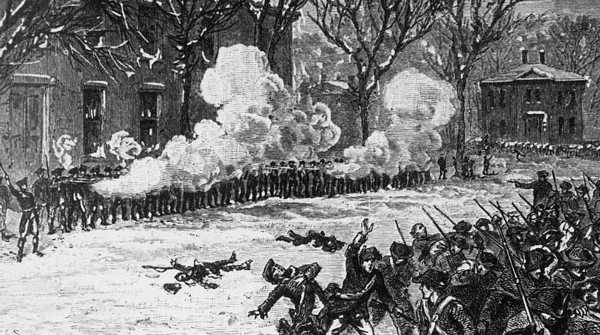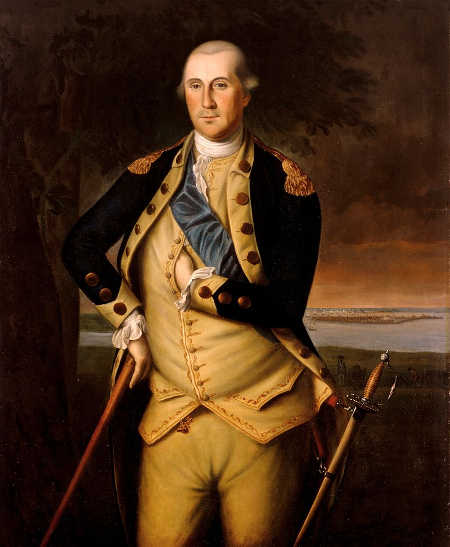
America was born into debt.
Noble sentiments and lofty ideals might be enough to rally the troops for rebellion, but you can’t eat those inalienable rights, armies don’t march on liberty alone and no one has yet discovered a way to militarize the pursuit of happiness.
The harsh reality of their poverty hit the founding fathers almost immediately. They may have been willing to risk life and limb, but most Revolutionary leaders clung tightly to their personal wealth. It’s true that this wasn’t always the case.
The most extraordinary example of patriotic philanthropy being Robert Morris, a wealthy businessman who on several occasions personally funded the Continental Army in supplies and troop salaries.
Having said that, even Morris was guilty of financially benefiting from his positions as the bankroller of the Revolution. When he organized the smuggling of arms and goods from Europe and the Caribbean, it was his company who was contracted to ship them.
Since the budding country couldn’t rely on its own sources of money, it had to look elsewhere for capital. Most of the diplomats sent overseas during the war weren’t looking for allies to help fight England, but lenders willing to take a risk on funding a rebellion.
Between these loans, and printing out its own currency, America was able to win its independence from England. By the end of the war, America owed a modern day equivalent of $2.5 billion to the French and Spanish monarchies and Dutch bankers.
But like a new college graduate finally waking up to his mountain of student loan debt, our new government was not prepared to pay the piper. Today’s college graduates eventually tighten their belts, reduce their living expenses and begin the lifelong process of paying back their loans.
Post-revolutionary America took the alternative approach and pretended their loans didn’t exist. But no matter how many fingers they stuck in their ears, no matter how loudly they hummed to themselves, the roar of the creditors irritatingly insinuated itself into the hallowed halls of Congress.
To be fair, it wasn’t entirely Congress’ fault. You have to remember that the country was still operating under the Articles of Confederation, a document that established each colony as a separate, sovereign entity.
As far as the colonies (now states) were concerned, they existed only in a loose confederation with the others. So when it came time to collect money owed to it, Congress found itself utterly impotent. Every state was reluctant to pay back debt for a war that was already won.
To make matters worse, Congress had no other way to make money, since under the Articles, it was unable to collect tariffs from imported and exported goods and had no taxing power to speak of. They owed billions, but had no way to adequately get money to pay back the debt (again, much like student loan borrowers).
To make matters worse, Congress owed not only foreign investors, but the very men who had fought and died to make its existence a reality. In January of 1783, two years after Yorktown but still nine months before the official end of the war, a delegation of high-ranking army officers arrived in Congress with a petition for back pay.
Delegates included such esteemed men as generals Knox and McDougall as well as a litany of colonels from well-connected families. They demanded back pay not just for themselves, but the men they commanded. The army petition was clear, eloquent and left no room for misunderstanding.
The final sentences read, “Our private resources are at an end. The uneasiness of the soldiers, for want of pay, is dangerous. Any further experiments on their patience may have fata effects.”
For the next few months, Congress hemmed and hawed, tried unsuccessfully to get its due from the states and finally succeeded in only passing a motion that a permanent fund to pay the soldiers should be established. In response to which, the soldiers essentially told Congress where it could stuff its motion.
The situation finally boiled over and officers stationed at Newburgh, New York, circulated a memo among themselves setting up a secret meeting for March 12. George Washington, who had been staying clear of politics at the time, got wind of this meeting, and had it postponed until March 15.
Marching to the new officer’s barracks on the appointed day and time, Washington took to the lectern and gazed out at the faces of men he had known now for years. He paused, and his men shuffled uneasily. He then produced a letter from his breast pocket, which explained the difficulties the nation faced.
He started to read from the letter, stumbled and stopped. He then pulled from his pocket something none of his men had ever seen their commander and chief use before – spectacles.
“Gentleman, you must pardon me,” Washington said softly, “I have grown gray in the service of my country, and now I find myself growing blind.”
The hardened soldiers struggled to stifle tears, as they remembered Washington’s own sacrifices made throughout the past eight years. His men were nothing if not completely devoted to him.
The so-called Newburgh Conspiracy collapsed before it had begun.
Over the next two centuries, America would take on a burden of debt of some $300 billion, mostly to fight the wars it took to maintain us as a country.
According to John Steel Gordon, author of “Hamilton’s Blessing: The Extraordinary Life and Times of Our National Debt,” our nation has taken on 36-times as much new debt in just the last 50 years.
More than ever, we desperately search for a George Washington and his spectacles, knowing all the while, I suspect, that like our nation’s solvency, his is a character irretrievable from the past.
Antone Pierucci is curator of history at the Riverside County Park and Open Space District and a freelance writer whose work has been featured in such magazines as Archaeology and Wild West as well as regional California newspapers.


 How to resolve AdBlock issue?
How to resolve AdBlock issue? 



